Sure, you know about Idaho’s potatoes. But do you know about these 5 other farm products?
Idaho is known for its golden potatoes. The state has long embraced the crop with potato-themed food, drinks and candy; a potato hotel and museum; and a potato-esque mascot — called Spuddy Buddy — that’s beloved by college football fans. It also rings in each new year by dropping a 17-foot-long potato in front of its Capitol in Boise.
But the state has more to offer than its signature starchy vegetable.
Idaho has nearly 25,000 farms and ranches, and they make up a big part of the state’s economy. Agriculture and food processing, like turning raw products into fries, cheese or wine, generate 17% of Idaho’s economic output and over 12% of its gross domestic product, according to the State Department of Agriculture.
About 96% of those farms are family owned, says Dawn Larzelier, marketing specialist for the department.
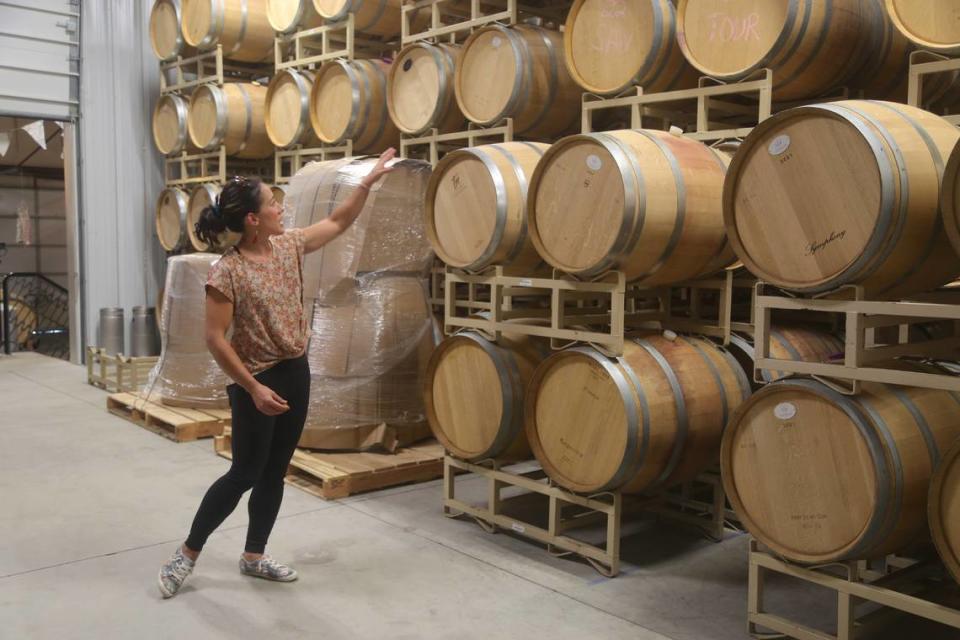
And aside from potatoes, which the soil is apt for growing, Idaho leads its neighboring states, including Washington and Oregon, in the production of barley, corn, sugarbeets and alfalfa, according to the USDA’s National Agricultural Statistics Service.
Some of those crops are used to make beer and feed cows. And dairy produced in southern Idaho is turned into mozzarella that’s shipped to grocery stores around the country.
Keep reading to learn more about five of Idaho’s most important farm products that aren’t potatoes. You’ll also find an easy way to support local farmers and to get a bargain right now on one of the state’s tastiest crops.
1. Barley
Idaho is the No. 1 producer of barley in the U.S. The vast majority is used to make beer.
“We have the largest concentration of malt processing in the world in southeastern Idaho,” Larzelier told the Idaho Statesman.
The state has several malting plants, including one operated by Belgian brewing giant Anheuser Busch InBev in Idaho Falls. Anheuser Busch is the largest buyer of Idaho barley, according to the Idaho Barley Commission. MillerCoors, the second-biggest beer company in the country, behind Anheuser-Busch InBev, has a storage facility and barley farm in Burley.
There’s also Great Western Malting Co.’s malting plant in Pocatello.
Anheuser Busch InBev bought Grupo Modelo in 2013 and its malting plant in Idaho Falls sends much of its production to breweries in Mexico, Larzelier said.
“If you’re a beer drinker, obviously we want you to first choose an Idaho craft beer,” she said. “But if you can’t get a locally crafted one, buy a Mexican beer, because it’s highly likely that Mexican beer was made with Idaho malt.”
2. Apples
When it comes to Idaho’s fruit, apples lead the way. The state produces over 60 million pounds of apples a year.
The well-known varieties include Granny Smith, Gala, Fuji and Red and Golden Delicious, though new varieties, such as Pink Lady and Honeycrisp, have made gains as the market grows.
Other fruits like cherries, peaches, apricots, plums and grapes thrive in Idaho, where warms days and cool nights contribute to a high sugar content.
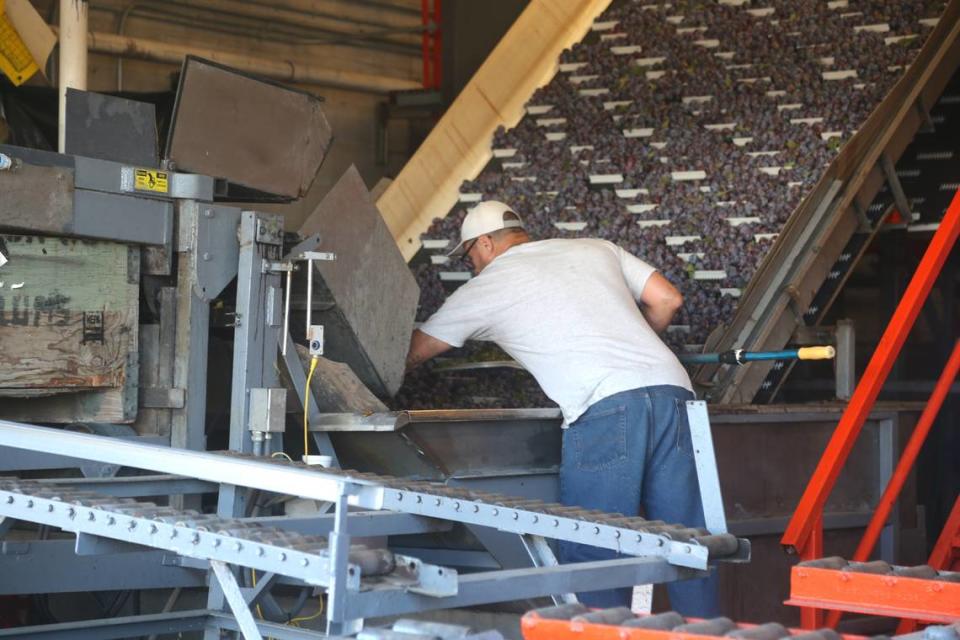
Symms Fruit Ranch, a family-owned farm in Caldwell with more than 5,000 acres, produces all of the above, plus nectarines and onions. Still, the farm produces more apples than any of its other crops, Eva Symms told the Statesman.
Some of its smaller fruits, like cherries and plums, also make the top of the list.
3. Wheat
Idaho wheat farmers have some of the highest yields per acre in the country, and the crop ranks as the state’s second largest, behind potatoes, in terms of revenue generated.
Nearly half of all the state’s wheat is sold to foreign markets.
“We are a major wheat producing state,” Larzelier said. “It’s one of our top three commodities for crops and it’s grown in about 42 out of our 44 counties.”
4. Dairy
The state also processes a significant amount of dairy, as evidenced by the often-smelly cow farms that line Interstate 84 between Wendell and Twin Falls. That milk is turned into cheese, yogurt, butter and more.
Lactalis, the world’s largest dairy company, purchases milk from hundreds of Idaho dairy farmers throughout the Treasure Valley and Magic Valley, according to the Idaho Department of Commerce.
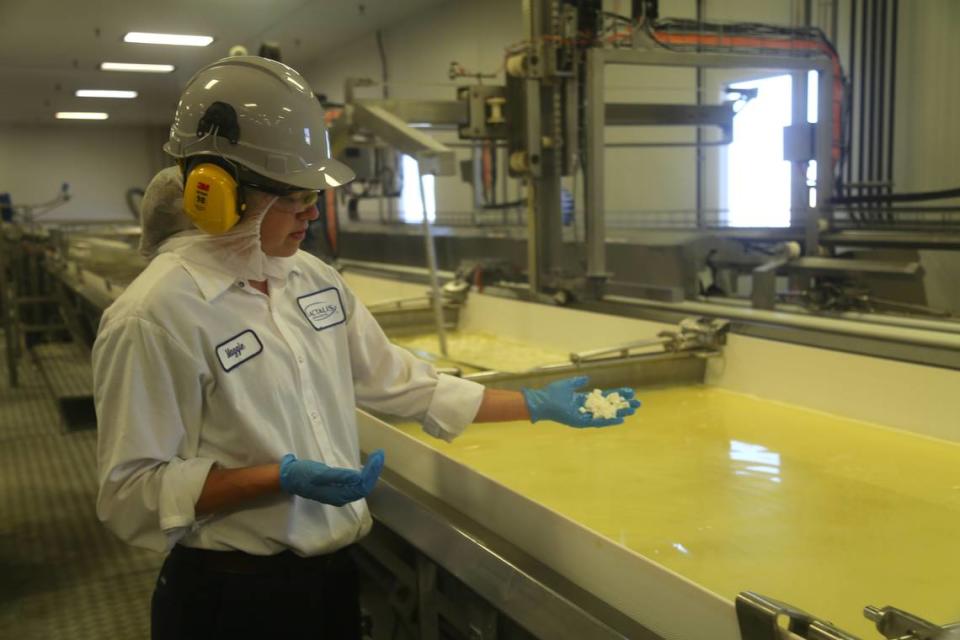
The company’s 326,000-square-foot plant in Nampa produces string cheese, shredded cheese, mozzarella and whey protein. It’s also the largest Lactalis plant in the country. The majority of the milk it processes is sourced from dairies within 25 miles of the plant, said Julie Chigbrow, a spokesperson for Lactalis.
“It’s very local,” Chigbrow told the Statesman. “It’s very fresh.”
5. Corn
Idaho grows over two-thirds of the sweet corn seed produced in the world, the State Department of Agriculture says. Many farmers use the crop for livestock feed.
Sweet corn itself grows well in the Treasure Valley, thanks to its high desert plains and cold winter temperatures that contribute to less disease and insects.
Matt Wissel, and his wife, Benita, grow sweet corn on their family-run farm near Lake Lowell in Nampa. The farm was established in 1911, and while it first grew wheat, beans and sugar beets, it now produces a wide range of vegetables and melons, including green beans, broccoli, cabbage, watermelon, pumpkins and winter squashes.
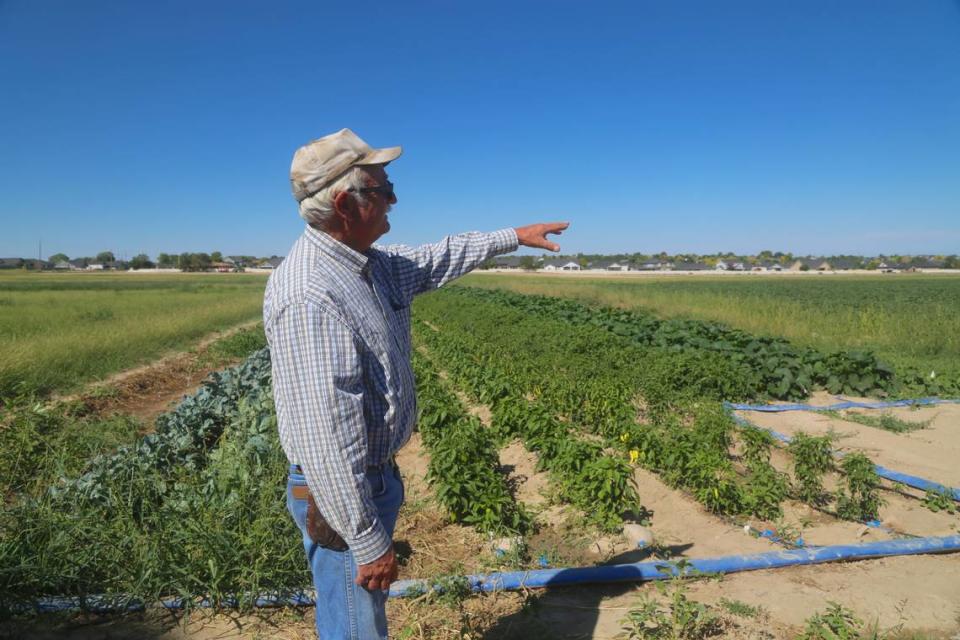
The Wissels sell their produce at some Albertsons and WinCo stores and at their farm stand.
How to get involved
Looking to get fresh produce from local farmers?
The Wissels also sell their goods through a CSA box service. CSA stands for community supported agriculture. It’s a business model that connects consumers directly with nearby farms.
Typically, it involves paying upfront in the springtime and receiving weekly boxes during the harvest season. Members can purchase a “crop share” before the growing season begins, and once it does, periodically (weekly, bi-weekly, etc.) come to the farm or another location to pick up their already paid-for shares of produce. Some farmers, like the Wissels, deliver the goods directly to your door.
CSAs for beef, chicken or pork differ and may involve a subscription or membership fee, since meat is not a seasonal product.
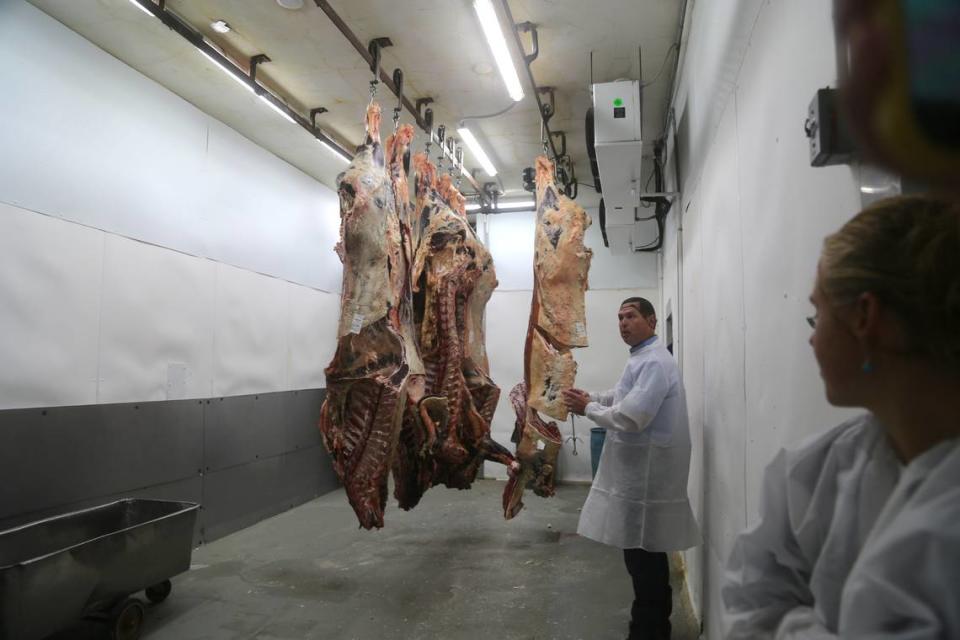
Peaceful Belly, a small family farm in Caldwell and the first in Idaho to offer a CSA service, charge $300 to $400 for its full share and less for half shares or seasonal shares, according to Larzelier. Peaceful Belly also has a cider and ice cream value add share that costs about $75 per season.
Matt Wissel said his farm has 212 members around the Treasure Valley that receive seasonal produce deliveries each week. They members pay $285 for the season, or three payments of $95.
“People get what’s harvested that week; They get a variety of all kinds of things,” he told the Statesman. “It also forces people to try something they’ve never had before.”
This past week, members got to try kohlrabi, a pale green and purple vegetable about the size of an orange. Kohlrabi tastes similar to broccoli and cabbage, although a bit sweeter. It’s commonly used in salads and soups.
You can browse this map to see what Idaho farms participate in CSA. There’s several in the Treasure Valley, ranging from vegetable, fruit and meat suppliers, and more across the rest of the state.
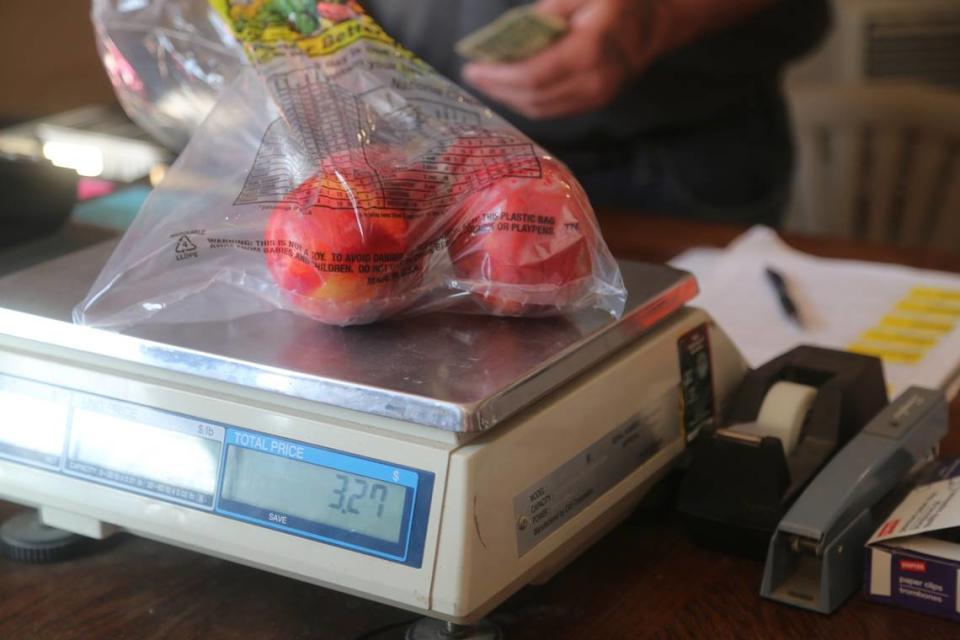
Price of local cherries plummets
Symms said the latest cherry season has been “devastating” for the farm, because of the amount of cherries being dumped into the market.
Typically, growers in California brings their cherries to market first, Washington follows suit and Idaho last. But Symms said California held on to their cherries for longer than normal this season, contributing to a glut of supply.
“It just plummeted the price and made it hard to be competitive,” she said.
Fortunately for consumers, that means lower prices on local cherries at the grocery store.
Concerts in Canyon County’s wine district? Businesses said yes, residents no. Who won
‘Heartache’ as Hispanic Cultural Center of Idaho management packs out of former building
When extreme heat hits Idaho, farmworkers struggle. What protections do they have?
5 apartment buildings. 2 subdivisions. Starbucks, Dutch Bros, Cafe Zupas. Coming soon

